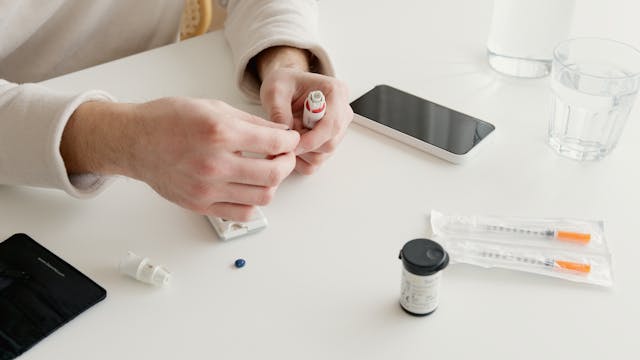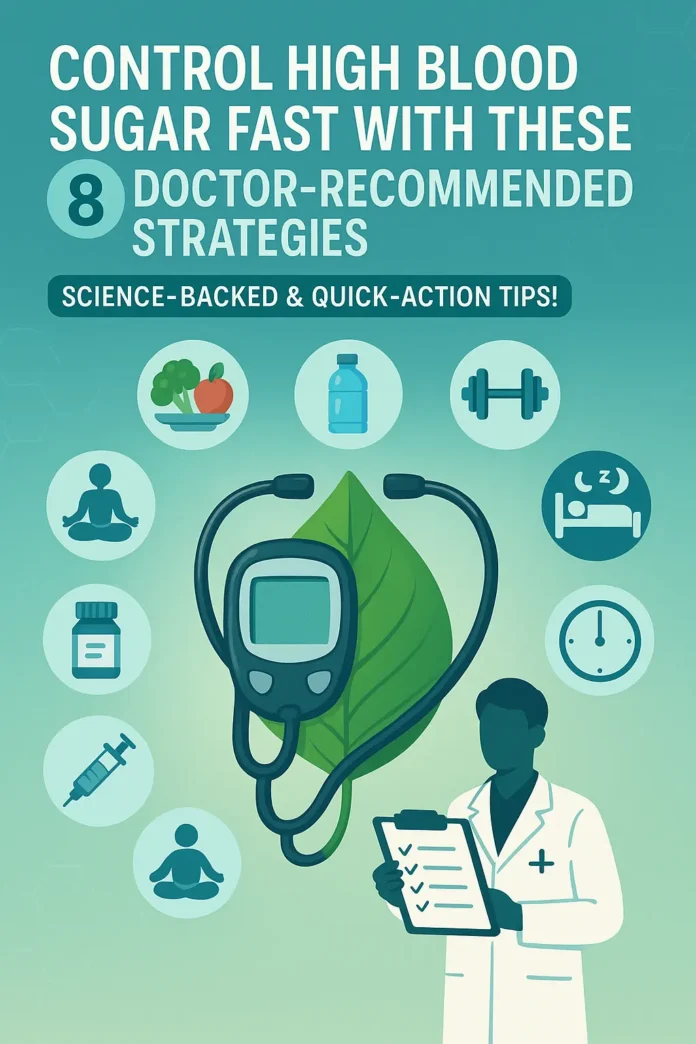Managing high blood sugar levels (also known as hyperglycemia) is crucial for individuals living with diabetes or prediabetes. Consistently elevated blood glucose can lead to serious complications such as heart disease, nerve damage, kidney issues, and vision problems. Fortunately, with the right strategies—ranging from dietary changes and regular exercise to blood sugar monitoring and stress management—you can effectively control your glucose levels. In this article, we explore 8 expert-recommended tips to help you lower high blood sugar naturally, improve your health, and maintain a better quality of life.
Checkout How to Choose the Best Air Purifier for Your Home: A Complete Guide for 2025
1. Evaluate Daily Diet Intake
Carbohydrates significantly impact blood sugar levels. Adopting the Healthy Plate Method—filling half your plate with non-starchy vegetables, a quarter with lean proteins, and a quarter with whole grains or complex carbs—can help stabilize glucose levels. Incorporating high-fiber foods like legumes, whole grains, and vegetables slows carbohydrate digestion, leading to more gradual blood sugar increases.
2. Maintain a Regular Exercise Routine
Engaging in at least 150 minutes of moderate-intensity physical activity weekly enhances insulin sensitivity and aids in blood sugar regulation. Activities such as brisk walking, cycling, or swimming for 20–25 minutes daily can be beneficial.

3. Manage Stress & Prioritize Sleep
Chronic stress and inadequate sleep can elevate blood sugar levels. Incorporating relaxation techniques like meditation, deep breathing, or yoga, and ensuring 7–9 hours of quality sleep each night, can help maintain stable glucose levels.
4. Stay Hydrated
Drinking sufficient water aids in flushing out excess glucose through urine. Aim for at least 8 glasses of water daily, and limit sugary beverages that can cause blood sugar spikes.
5. Frequent Monitoring
Regular blood sugar monitoring helps identify patterns and manage glucose levels effectively. For Type 1 diabetes, testing 4–10 times daily is recommended, while Type 2 diabetes monitoring frequency varies based on treatment plans.
6. Check for Underlying Infections
Infections can cause blood sugar levels to rise. If experiencing unexplained hyperglycemia, consult a healthcare provider to rule out infections or other underlying conditions.
7. Consult a Nutritionist
A registered dietitian can provide personalized dietary advice, helping to create meal plans that maintain blood sugar within target ranges. They can also assist in carbohydrate counting and understanding glycemic index values.
8. Consult Your Diabetologist
Regular consultations with a diabetologist are essential to adjust medications as needed and to address any concerns regarding diabetes management.
Checkout The Truth About Weight Loss: Is It Fat Loss You’re After?
Additional FAQs on High Blood Sugar Management
– Type 1 Diabetes: 4–10 times daily, including before meals, snacks, exercise, and bedtime.
– Type 2 Diabetes: Frequency depends on treatment; those on insulin may need to test multiple times daily, while others may require less frequent monitoring.
Common symptoms include frequent urination, increased thirst, fatigue, blurred vision, and slow-healing wounds.
Certain natural remedies, like consuming fenugreek seeds, bitter gourd, or cinnamon, may aid in blood sugar control. However, always consult a healthcare provider before incorporating them into your regimen.
Conclusion
Effective management of high blood sugar involves a multifaceted approach, including dietary modifications, regular physical activity, stress management, adequate hydration, and consistent monitoring. Collaborating with healthcare professionals ensures personalized care and better outcomes in diabetes management.


